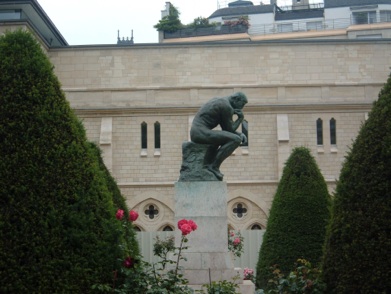

PHIL 202 ARISTOTLE


INSTRUCTOR: Prof. Richard C. Taylor
OFFICE: Coughlin Hall 238
MAILBOX: Coughlin Hall 132
TELEPHONE: 288-5649 (with voicemail)
EMAIL: mistertea@mac.com (or Richard.Taylor@Marquette.edu)
FAX: 288-3010
OFFICE HRS: Tuesday 8:15-9:15, 11-12, Thursday 11-12, and by appointment
COURSE LOCATION & TIME: Cudahy 148, TT 9:35-10:50
COURSE WEBSITE: http://web.mac.com/mistertea/iWeb/Aristotle%20Fall%202006/Phil%20202%20Aristotle%20Fall%202006.html
D2L: The Marquette D2L web-based system will also be utilized for this course. Students are expected to familiarize themselves with this Marquette resource.
Phil 202: Aristotle. Dr Richard C. Taylor
This course is a graduate level introduction to the thought of Aristotle with primary focus on learning to read the texts and understand their arguments. Students will learn to make use of the research and reference tools currently available and will also learn to make critical use of secondary sources. In the course of the semester, the course will evolve into a sophisticated and challenging graduate seminar.
Part 1 of the course consists of readings, discussion and lectures on Aristotle's thought, on his importance in the history of philosophy, and on methodology and tools for the study of Aristotle's thought. In this period we will also study closely Aristotle's parts of Categories, On Interpretation, Prior Analytics, Posterior Analytics, Physics and Metaphysics.
In Part 2 of the course teams of two students will work together on a presentation of the key issues in the relevant texts of Aristotle’s Metaphysics. Students are expected to work closely with the Instructor in preparing this assignment.
In Part 3 students will prepare and present in class short papers on selected topics in Aristotle’s Peri Psyches / De Anima (Psychology) as drafts of the final course paper.
TEXTS: THE COMPLETE WORKS OF ARISTOTLE, ed. J. Barnes, 2 vols., Princeton University Press; Aristotle. ON THE SOUL et alia., tr. W. S. Hett, Loeb Classical Library. London & Cambridge, MA.
GRADING: Grading will be based on classroom discussion and assignments (20%), a first exam (20%), a final course paper of 20 + pp. (40%), and a final course examination (20%)


"Truth does not contradict truth but rather is consistent with it and bears witness to it."
Ibn Rushd / Averroes following Aristotle, PRIOR ANALYTICS 1.32, 47a8-9




Rodin’s The Thinker
Aristotle



